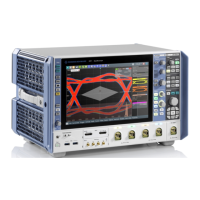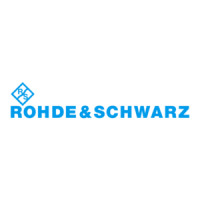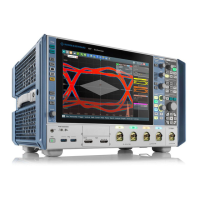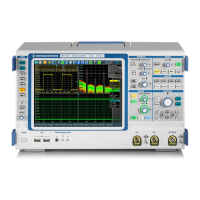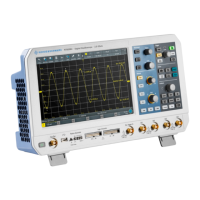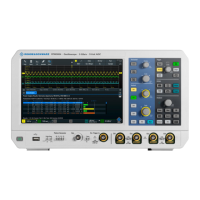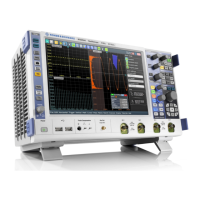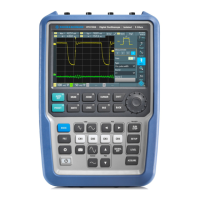Protocol analysis
R&S
®
RTE
766User Manual 1326.1032.02 ─ 20
●
SEARch:RESult:SENT:FRAMe<m>:NIBBle<n>:VALue? on page 1729
●
SEARch:RESult:SENT:FRAMe<m>:PAPTicks? on page 1729
●
SEARch:RESult:SENT:FRAMe<m>:SCOM? on page 1730
●
SEARch:RESult:SENT:FRAMe<m>:SDATa? on page 1730
●
SEARch:RESult:SENT:FRAMe<m>:SYMBol? on page 1731
●
SEARch:RESult:SENT:FRAMe<m>:SYNCduration? on page 1731
●
SEARch:RESult:SENT:FRAMe<m>:TYPE? on page 1732
13.14 Custom: Manchester / NRZ (option R&S RTE-K50)M
R&S RTE-K50 is a firmware option that enables the R&S RTE to analyze customizable
serial bus signals encoded by the following coding standards:
●
Manchester
●
Manchester II
●
NRZ Clocked
●
NRZ Unclocked
For analysis, signals encoded in any of these protocols can be triggered and decoded.
Due to the free format description, no search within the decoded events is available.
This chapter describes:
● Custom: Manchester / NRZ protocols...................................................................766
● Custom: Manchester / NRZ configuration.............................................................768
● Custom: Manchester / NRZ trigger....................................................................... 788
● Custom filter..........................................................................................................793
● Custom: Manchester / NRZ decode results.......................................................... 795
● Search on decoded custom Manchester / NRZ data............................................ 798
13.14.1 Custom: Manchester / NRZ protocols
"Manchester" coding is a self-clocked coding scheme also known as phase-shift keying
(or phase encoding, PE). It is used in protocols such as ProfiBus (IEC 61158), DALI
(Digital Addressable Lighting Interface, IEC 60929 and IEC 62386), MVB (Multifunction
Vehicle Bus, part of IEC 61375 for Train Communication Networks, TCN), and Ethernet
10BASE-T (10 Mbit/s, IEEE 802.3i). In terms of a logical Boolean operation, the Man-
chester value of each bit (as per G. E. Thomas) is the exclusive disjunction (XOR) of
the original data value and the clock value. A "0" is expressed by a high-to-low transi-
tion, a "1" by a low-to-high transition. These transitions, which occur at the middle of
each bit period, make the signal self-clocked.
"Manchester II" coding (as per IEEE 802.3) is represented by inverted Manchester val-
ues: a "0" is expressed by a low-to-high transition, a "1" by a high-to-low transition.
NRZ stands for "non-return-to-zero" coding: Typically a "1" is represented by a positive
voltage and a "0" is represented by a negative voltage, with no "zero" voltage state.
Custom: Manchester / NRZ (option R&S
RTE-K50)M
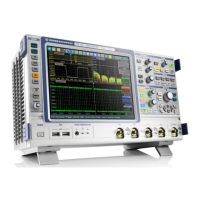
